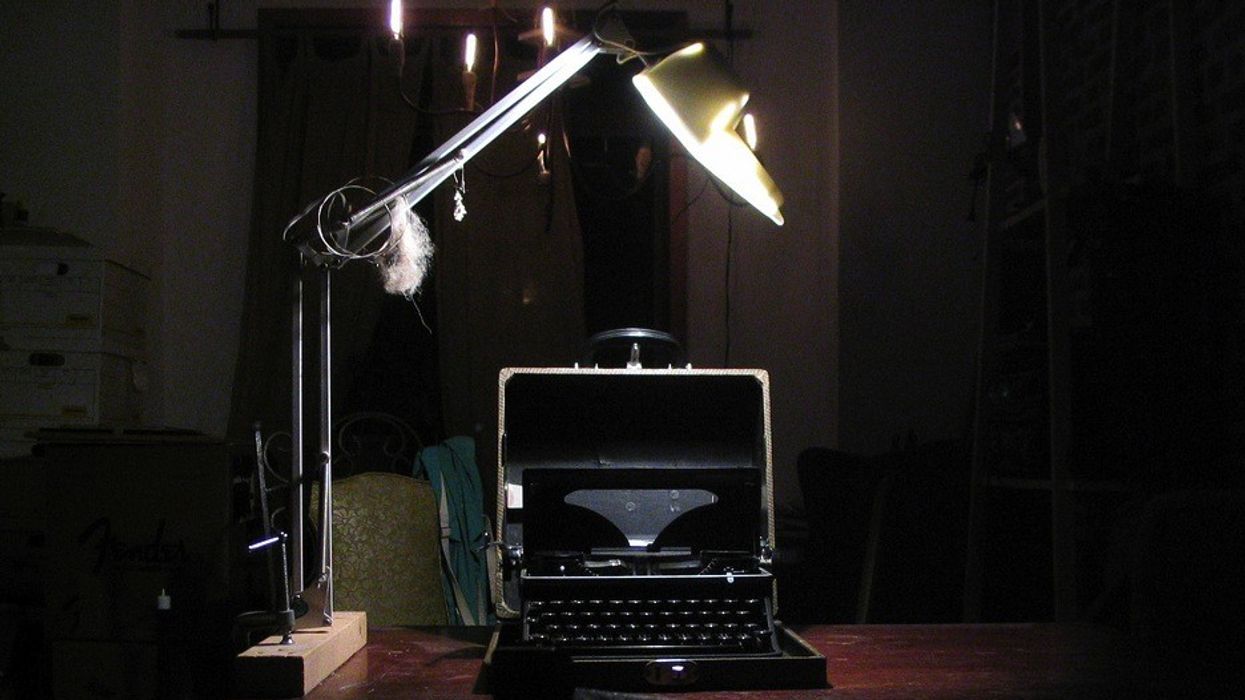Need an Attitude Adjustment? Screenwriting Tips on How to Approach Your Work

Just about every spare moment I have is spent researching for, suffering over, or banging my head against a wall because of my screenplay. In fact, very little writing actually gets done these days, and I often wonder, as I look at my bookshelf full of material on sharpening my screenwriting and narrative tools, "What am I not getting?" Sometimes what it takes to get your screenplay off the ground isn't advice on how to write it, but what kind of attitude to adopt when you do. Award-winning screenwriters Henry Bean, Larry Gross, Naomi Foner, and Andrea Arnold shared some excellent advice at the Story Creation and the Artistic Process panel as part of the NYFF Live series of filmmaker conversations. Read on for what they said.
Indiewire shares a bunch of writing tips from these screenwriters. For instance, Foner and Bean claim that living in the city provided them with lots of inspiration and fodder for their screenplays, but of course this could be attained anywhere that inspires you, whether that's in one of the biggest metropolitan areas in the world, or in a tiny slice of Americana nestled between two aging mountains.
But one of the key aspects to successful writing, other than good writing, is maintaining a healthy attitude about your writing. I mean, I don't have any statistics, but I'd venture to say that the 2nd biggest reason certain screenwriters don't find success (1st being bad writing) is the attitude they have during the process, which eventually leads them to either writing a poor script or abandoning it all together.
Here are a few of the tips these writers shared that I think speak specifically to the attitude successful writers take when crafting their screenplays:
The Perfection Illusion
Nothing that has ever been written is going to be perfect. The perfect script is an illusion. Think about some of the greatest screenplays ever penned: Cassablanca, The Godfather, Chinatown -- we study these works to help our own, claiming that they're flawless and perfect, but if you needed anyone to find the imperfections in those amazing screenplays, just ask the writers themselves. Gross says:
The biggest thing that separates novice writers from professional writers is that professional writers have learned to forgo the illusion that they're going to produce imperfect work.
Excuses Don't Write Screenplays
This is one of my favorite things to do: make excuses as to why I'm not getting anywhere on my screenplay. My favorite excuse is, "I don't have enough time!" Listen, if I have enough time to say that I don't have enough time, guess what, I have enough time to do something with my screenplay. Bean touches on this in probably the best way possible, "There are a million things that are distracting you and a million excuses and if you want an excuse not to write, you will find it."
Your Opinion Matters Most
At the end of the day, the one who will ultimately be affected most by your writing is you. Are you writing the stories you want to tell or are you too concerned with markets and what everyone else wants? Are you listening to other people's advice more often than your own intuition? I'm not saying playing the markets and heeding advice from others aren't good things, but there has to be a balance. Be sure that you are the one manning the helm.
And you're bound to find those who absolutely hate your writing, but at the end of the day, you're the one who has to live with your writing, not them. If you have a need to write, then do it regardless of what the naysayers say. Arnold says:
I think I started writing because I felt like I had to. I hate it and I love it at the same time. It's really hard -- Even though I don't think I'm a brilliant writer -- lots of people say, "Oh she's a better director than a writer," -- I don't fucking care.
What do you think? What are some things you do to maintain a positive attitude towards writing? Let us know in the comments below:
[Typewriter image by Flickr user phooky]











